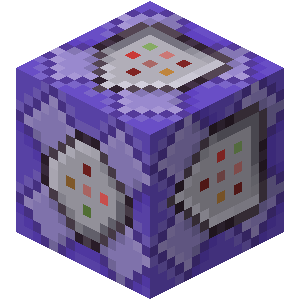- Cemetech Contest 19 Results Announced
- 01 Apr 2017 01:15:08 pm
- Last edited by PT_ on 01 Apr 2017 01:37:59 pm; edited 2 times in total
We are more than happy to announce the winners of Cemetech Contest #19: Pathfinding from Hell.

Participants had to make a pathfinding algorithm in pure BASIC, which finds its way through some 10x10 mazes. To make it more challenging, some tokens were forbidden, which made it harder but funnier. Entries were required to fulfill this task, and output a correct path.
Judging was a puzzle, and that was due to a mistake on our behalf. Only 2 participants submitted an entry, so one might assume it would be pretty easy to judge. However, we didn't make the inputs before looking at both entries. While testing an example, we noticed that both participants used a different way to find a path, one of which heavily depended on the input. But, we had no inputs yet, and we knew what kind of inputs (lots of walls, or more open areas) were required for one entry to find a path very quickly. Thus, we were all biased for making inputs, so that is why we decided to do it a little bit differently. Instead of making all the inputs ourselves, I've asked a friend to generate some inputs (who was totally independant). Because there were only 2 entries, we decided that 9 inputs in total would be enough, especially since the timings of both entries were quite different. So, we all tested 3 inputs each, and this was enough to declare a winner.
And now it's finally time to announce the winners!
As mentioned in the original news article, the winners will receive a Steam giftcard of $30 and $15 respectively. Outside of that, jonbush is willing to create plaques for both winners. Congratulations again to both winners, and hope to see you all next time at Cemetech Contest 20!

Participants had to make a pathfinding algorithm in pure BASIC, which finds its way through some 10x10 mazes. To make it more challenging, some tokens were forbidden, which made it harder but funnier. Entries were required to fulfill this task, and output a correct path.
Judging was a puzzle, and that was due to a mistake on our behalf. Only 2 participants submitted an entry, so one might assume it would be pretty easy to judge. However, we didn't make the inputs before looking at both entries. While testing an example, we noticed that both participants used a different way to find a path, one of which heavily depended on the input. But, we had no inputs yet, and we knew what kind of inputs (lots of walls, or more open areas) were required for one entry to find a path very quickly. Thus, we were all biased for making inputs, so that is why we decided to do it a little bit differently. Instead of making all the inputs ourselves, I've asked a friend to generate some inputs (who was totally independant). Because there were only 2 entries, we decided that 9 inputs in total would be enough, especially since the timings of both entries were quite different. So, we all tested 3 inputs each, and this was enough to declare a winner.
And now it's finally time to announce the winners!
- The second place goes to commandblockguy. He wrote a very nice program which works perfectly, but sadly it wasn't the fastest, and because his program was bigger as well, he only got 8 points for elegance. If only the speed was a bit faster, he would surely have a chance to win this contest. Nevertheless, congratulations on actually finishing an algorithm and being second!
- The first place goes to jacobly. He wrote a very small and fast program, which did a recursive search in the maze, finding it's way through the maze, resulting in a very nice score of 97 points. The only problem with jacobly's entry was that it sometimes results in an error, although it found a path. However, we did not disallow resulting in an error, so we want to congratulate him with his well-earned first place!
As mentioned in the original news article, the winners will receive a Steam giftcard of $30 and $15 respectively. Outside of that, jonbush is willing to create plaques for both winners. Congratulations again to both winners, and hope to see you all next time at Cemetech Contest 20!
















